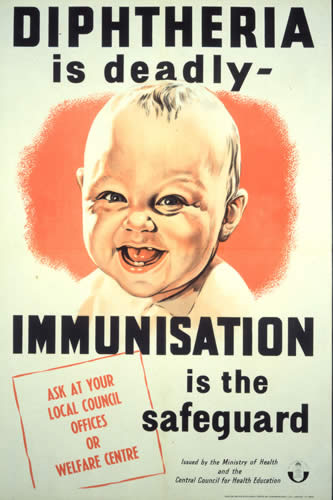This is the story of Pau and Rhett who never met, but who have – through a death and a life-threatening illness – provoked debate around vaccination.

On the 27th June 2015, a six-year-old Spanish boy named Pau died of diphtheria after nearly one month hospitalized in intensive care. It was the first case of diphtheria in Spain in 29 years, and the first case in 32 years in Pau’s home region of Catalonia. The drugs used to try to save Pau’s life had to be brought from Russia as they had become so rare. Vaccination could have saved the child’s life, but his parents had refused.
The Catalan Minister of Health, Boi Ruiz, hoped that the child’s death would prompt “collective reflection” on the need to vaccinate. El Pais reported that the diphtheria case had already led to a demand for diphtheria vaccinations with a 28.5% increase among adults, a 27% increase among children under six months, and 22% among children over 18 months.
In February this year, following the Disneyland measles outbreak, a six-year-old Californian boy named Rhett spoke on US national news about his leukaemia, urging people to get vaccinated. He explained how he depends on others being vaccinated to protect him from infectious diseases, because his medical condition prevents him from getting vaccination himself.
Rhett lives with his family in Marin County, California, where rates of personal belief exemptions are among the highest in the State. The legal option to request a “personal belief” exemption for childhood vaccination has been hotly debated since the Disneyland outbreak, which drew attention to the State’s vulnerability to vaccine preventable diseases given the pockets of vaccine refusers.
On the 24th June, Rhett (now seven) carried a box of over 30,000 signatures to California Governor Jerry Brown, and made a personal appeal in support of SB 277– the senate bill to remove the personal belief exemption for required childhood vaccinations to attend school, while continuing to allow exemption for medical reasons. Rhett told his story, in the California State Assembly, of his personal fight with his blood cancer – undergoing chemotherapy, receiving multiple drugs and over 50 lumbar punctures to “get the bad [cancer] guys out” – and now he is advocating for vaccination to protect his own and others’ lives. It was reported that there had been more personal testimonies around this contentious bill than even the state budget.
The State Assembly has now passed the bill, and Governor Jerry Brown has signed it into law.
In February 2015, while Rhett was speaking out about the importance of measles vaccination in California, an 18-month-old baby died of measles in Berlin, Germany. Although there was only one reported measles-related death, Berlin was facing a major measles outbreak with over 576 cases between October 2014 and February 2015 when the 18-month-old died. While sources of the measles outbreak were reported to be from outside Germany – including from Bosnia and Herzegovina, Serbia, and the United States – the outbreak spread because of under-vaccination. It is now unlikely that Germany will be able to eliminate measles by the end of 2015 as hoped and the child’s death has provoked debates about whether vaccination should be mandatory.
Why are a diphtheria death of a six-year old in Spain, a measles death of an 18-month-old child in Germany, and the pleas of a six-year-old living with leukaemia in California needed to persuade highly educated adults to believe in vaccination?
These events are not about lack of information, or about access issues. They are not due to poverty. This is a tale of over-confidence, forgetting the huge progress that vaccines have made in saving lives and contributing to a doubling of life expectancy in some of the countries with the most questioning around vaccination.
Even economist Jeff Sachs has jumped into the debates on vaccines. It is one of the few times I have heard the usually confident Jeff Sachs sound baffled. “When you see with all the possibility (scientific advances, lives saved), then there’s a rejection of the very things that keep us alive…Where are we? How can this be?” [For full clip visit: http://www.businessinsider.com.au/jeff-sachs-anti-vaccine-fatal-flaw-vaxxers-california-2015-6/]
Along the same lines, I could only think of a line from one of my favourite children’s books (which are generally full of wisdom for adults). The line is from The Little Prince:
“I have lived a great deal among grown-ups. I have seen them intimately, close at hand. And that hasn’t much improved my opinion of them.”
Originally posted on Dr Larson’s Vaccine Confidence Project website




